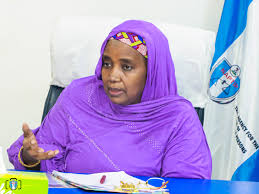A Consultant Clinical Microbiologist and Head, Department of Medical Microbiology & Parasitology, University of Port Harcourt Teaching Hospital, Dr Mary Alex-Wele, has warned that Nigeria’s growing antibiotics resistance poses a severe threat to public health.
Alex-Wele, who also serves as the Chairperson, Nigeria Core Group for Policy Briefs Development Steering Committee under, WHO RADAAR Evidence-Informed Policy Network (EVIPNet), in an interview with the News Agency of Nigeria (NAN) on Wednesday – earlier today, March 5 – in Abuja, said Nigeria is at risk of running out of effective treatments for common infections due to rising antibiotics resistance.
“The World Health Organisation (WHO) estimates that 700,000 people die annually from drug-resistant infections, a number projected to rise to 10 million by 2050 if urgent action is not taken,” she said.
She attributed the crisis to widespread misinformation about antibiotics, citing a recent WHO multi-country survey that revealed misconceptions fueling the problem.
“Many Nigerians wrongly believe that antibiotics can treat viral infections like colds and flu, leading to unnecessary prescriptions and self-medication,” she said.
She added that nearly 70 per cent of respondents in some low-income countries, including Nigeria, reported using antibiotics in the past month often without a prescription.
Alex-Wele warned that Nigeria is already witnessing the devastating impact of antibiotics resistance.
“We are seeing an alarming increase in multi-drug-resistant bacteria in hospitals, where some infections are now nearly untreatable,” she said.
She highlighted that drug-resistant strains of gonorrhoea and tuberculosis are spreading in communities, making treatment more difficult and expensive.
“More patients are being admitted with severe infections that no longer respond to standard antibiotics. We have cases where patients with simple urinary tract infections or pneumonia develop complications because first-line antibiotics fail,” she explained.
She identified easy access to antibiotics without prescriptions as a key driver of resistance.
“Many Nigerians buy antibiotics over the counter from pharmacies and street vendors, often using them incorrectly,” she said, emphasising the importance of using antibiotics only when prescribed by a qualified doctor.
“Taking the wrong antibiotic or stopping treatment too soon allows bacteria to adapt and become resistant,” she warned.
In response to the growing threat, she noted that the Nigerian government has launched the National Action Plan on Antimicrobial Resistance, aimed at improving antibiotics stewardship and strengthening regulations.
However, she stressed that enforcement remains weak and called for more decisive action.
“We need stricter controls on the sale of antibiotics, better public awareness campaigns, and improved diagnostic facilities to ensure antibiotics are only used when necessary,” she said.
She urged Nigerians to support global efforts to combat antibiotics resistance, in line with WHO’s call for individuals to become “Antibiotic Guardians” by using antibiotics responsibly and following medical advice.
Alex-Wele warned that if urgent action is not taken, antibiotics resistance could push Nigeria’s healthcare system into a deeper crisis.
“Without urgent action, routine infections could once again become deadly, and the progress of modern medicine may be reversed,” she cautioned, urging Nigerians to stop self-medicating, complete prescribed antibiotics courses, and demand stronger policies to regulate antibiotics use.
“The fight against antibiotic resistance is not just the responsibility of doctors and policymakers; it is a battle that every citizen must join,” she concluded.



























